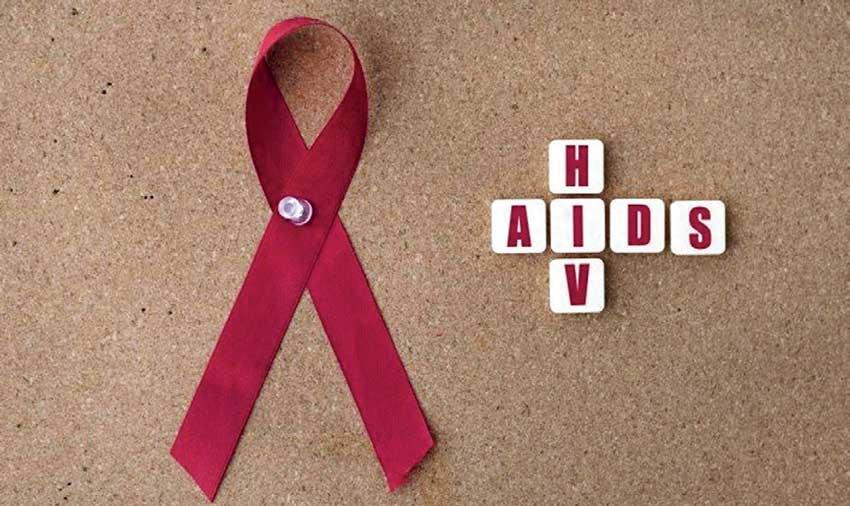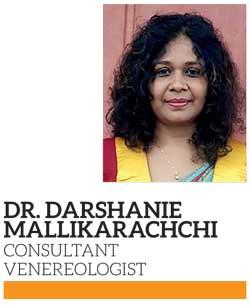03 Dec 2021 - {{hitsCtrl.values.hits}}
 In 2019, 439 cases of HIV/AIDS were reported, while in 2020 there was a reduction of cases as only 363 cases were reported. Dr Darshanie Mallikarachchi, Consultant Venereologist and National Programme Coordinator for IEC, Advocacy and Condom Promotion at the National STD/AIDS Control Programme, opined that this could be due to the reduced screening carried out due to the COVID-19 pandemic. “Due to travel restrictions, people could not travel to get tested and there were also less people referred. We too could do less outreach activities. This contributed to reduced screening.”
In 2019, 439 cases of HIV/AIDS were reported, while in 2020 there was a reduction of cases as only 363 cases were reported. Dr Darshanie Mallikarachchi, Consultant Venereologist and National Programme Coordinator for IEC, Advocacy and Condom Promotion at the National STD/AIDS Control Programme, opined that this could be due to the reduced screening carried out due to the COVID-19 pandemic. “Due to travel restrictions, people could not travel to get tested and there were also less people referred. We too could do less outreach activities. This contributed to reduced screening.”

"When viral load is reduced to undetectable levels the infected person will not be able to transmit the disease and can have normal life expectancy and lead healthy lives "
She also stated that due to the pandemic, public attention has shifted from diseases such as HIV/ AIDS. Therefore, this year’s theme for World AIDS day is ‘End Inequalities. End AIDS. End Pandemics.’ “We cannot forget COVID-19, but focus should be given to other diseases as well,” explained Dr Mallikarachchi.
 She also shared that increase of reported cases did not mean these were new infections, the increase in reported cases was due to increased screening. “If those tested have symptoms of acute HIV infection, then it can be categorized as a new infection. Mostly those tested have had the infection for a while.” said Dr Mallikarachchi.
She also shared that increase of reported cases did not mean these were new infections, the increase in reported cases was due to increased screening. “If those tested have symptoms of acute HIV infection, then it can be categorized as a new infection. Mostly those tested have had the infection for a while.” said Dr Mallikarachchi.
She stated that when HIV infection is detected early, it can be controlled and prevented from progressing into AIDS. “Through anti-retroviral therapy, the viral load is reduced to undetectable levels. This will prevent the progression to AIDS thereby preventing immune system deterioration. When viral load is reduced to undetectable levels, the infected person will not be able to transmit the disease and can have normal life expectancy and lead healthy lives. They will have to take daily anti-retroviral therapy. Such women can also have a normal delivery safely,” she revealed.
Currently pre-exposure prophylaxis (PrEP), taken before possible exposure to HIV, and post-exposure prophylaxis (PEP), taken after possible exposure to HIV, are available at STD clinics to prevent contracting HIV/ AIDS. She stated that PrEP and PEP are also given to those at high risk for contracting HIV /AIDS.
“Even when the disease has progressed to AIDS, there are treatments to control the disease. Currently, mortality rate for AIDS is lowering. Therefore, HIV has become a chronic manageable condition,” she said, adding that people should not be scared to test for HIV infection. She shared that testing could be done at the STD clinics available across the island, at hospitals or even via self-test kits which can be ordered online and delivered. “However, self-test kits available in the country are less sensitive than the blood tests we have in the clinic. Even if one gets tested at the clinic, confidentiality of the patient is protected,” said Dr Mallikarachchi.
She stated that anyone who has had unprotected sex should get voluntarily tested for HIV, even when it is done only with their faithful partner. “More than 50% of the females who test HIV positive have only had sexual relations with their one faithful partner,” she revealed adding that those with risky behaviours and those at high risk should get screened regularly.
“Students should be educated about safe sex and STIs. This will increase the awareness of STIs and incidences will be minimized. People should also be aware of the treatment options available and not stigmatize those infected.
Sri Lanka does not have the latest treatments such as the injection available in other European countries, but the treatment currently available can control the disease and can event prevent progression of HIV to AIDS,” reiterated Dr Mallikarachchi.
19 Nov 2024 7 minute ago
19 Nov 2024 36 minute ago
19 Nov 2024 2 hours ago
19 Nov 2024 3 hours ago
19 Nov 2024 3 hours ago